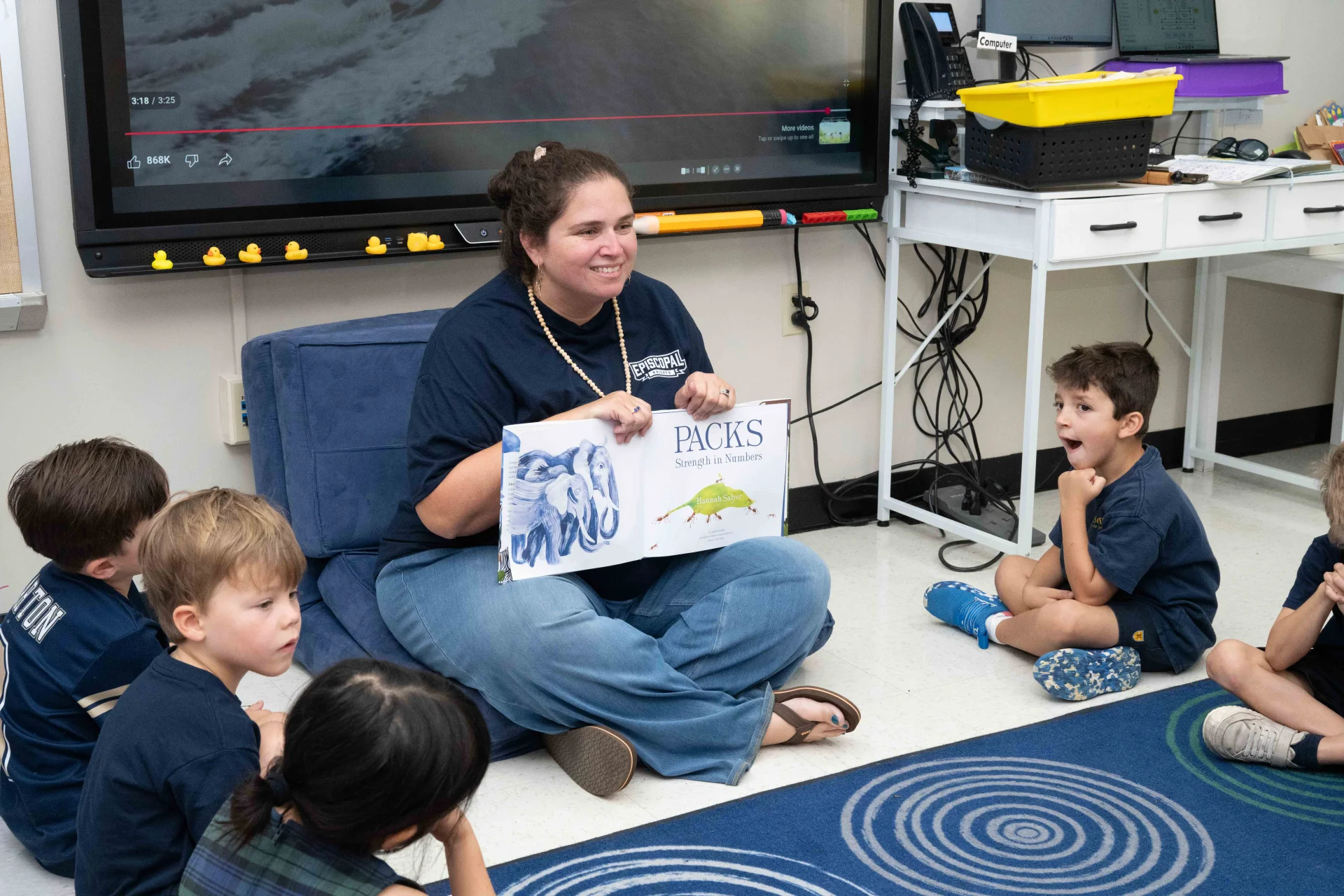- Admission
- Discover Episcopal
- Our Program
- Athletics
- Arts
- Spirituality
- Student Life
- Support Episcopal
- Alumni
- Parent Support
- Knightly News
- Contact Us
- Calendar
- School Store
- Lunch Menu
- High School Musical jr
« Back
Responsive Classrooms, Resilient Learners
August 20th, 2025
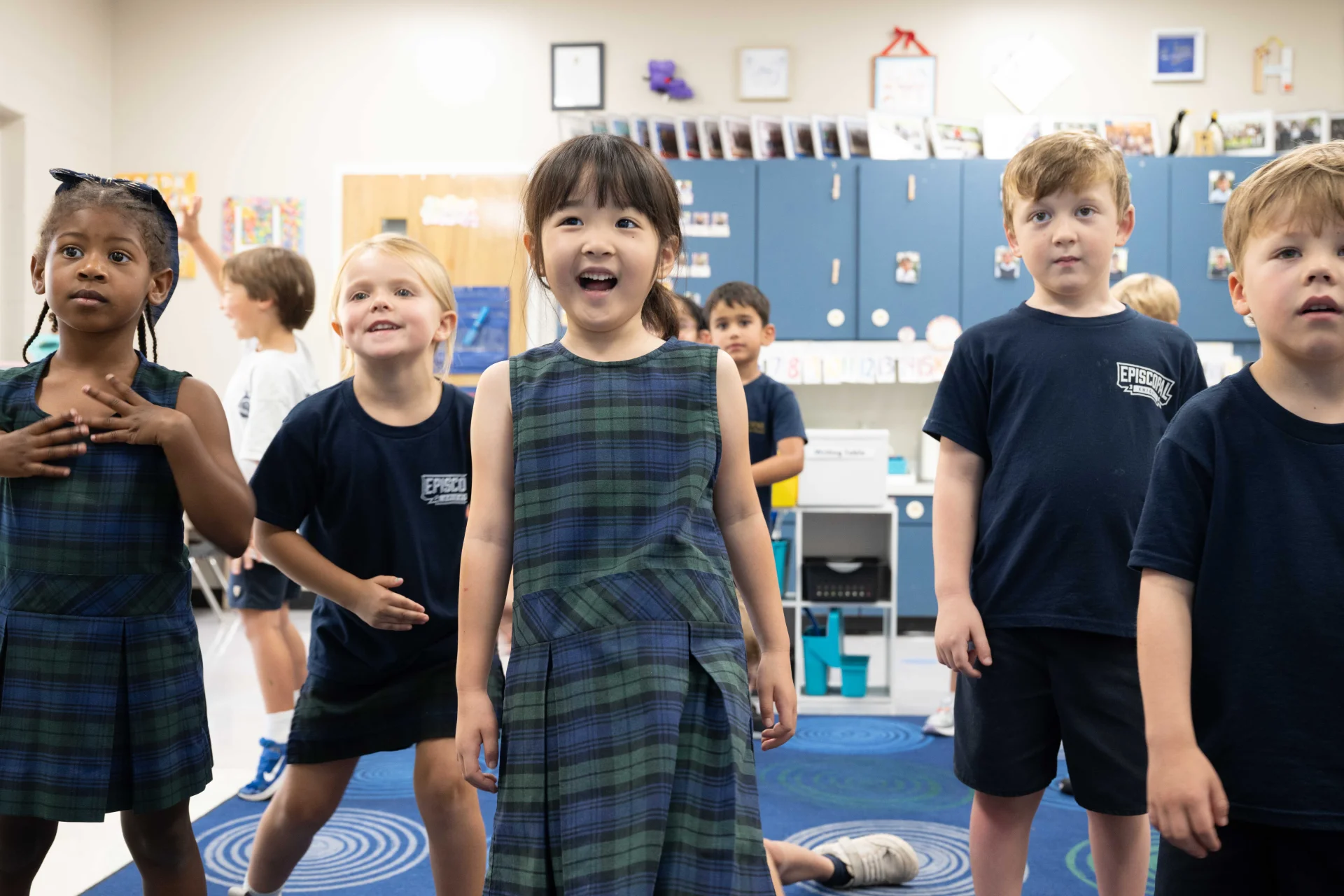
Episcopal teachers embrace the whole child philosophy of education, where students are nurtured and developed spiritually, intellectually, morally, physically and artistically. One method Lower School educators use to support this teaching style is the Responsive Classroom approach, which emphasizes respect for and protection of the dignity of every child. The program’s developers say, “The responsive classroom approach is a way of teaching that emphasizes social, emotional, and academic growth in a strong and safe school community.” Teachers are trained in engaging academics, positive community building, effective management and developmentally responsive teaching.
Summer Refresher Reinforces Proven Strategies
The Responsive Classroom approach is a classroom management philosophy that helps establish a community of empowered students who understand fully the expectations and behaviors required of them and the results of those expectations and behaviors. Research supports the philosophy. A three-year study by University of Virginia researchers found that the approach is associated with higher academic achievement, improved teacher-student interactions and higher quality instruction.
While Episcopal Lower School teachers have used this classroom management philosophy for some time, it is always beneficial to get a refresher. This summer, kindergarten teacher Sara Henderson, Lower School administrator Michelle Grantham and first grade teacher Kathleen Nguyen attended Responsive Classroom workshops.
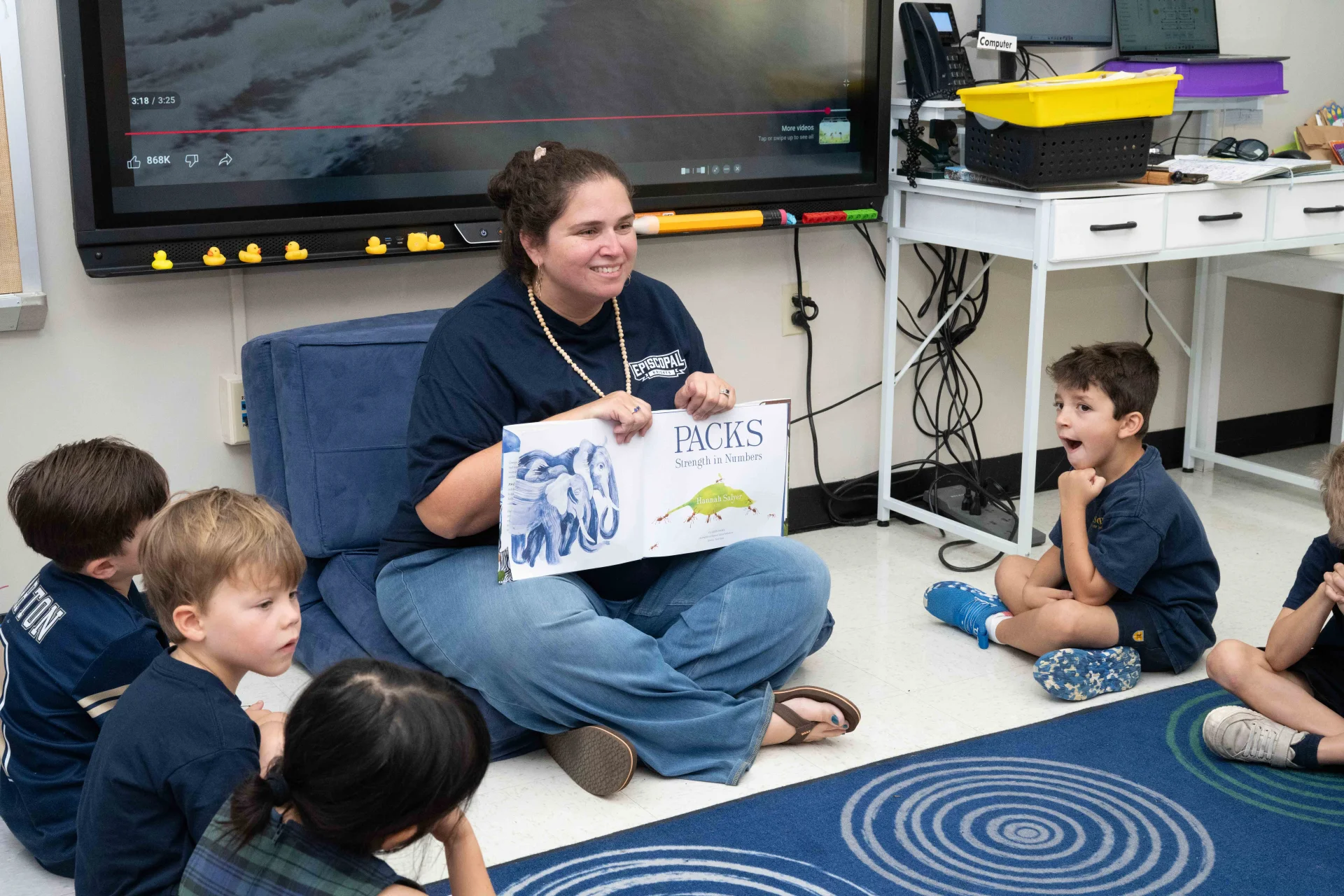
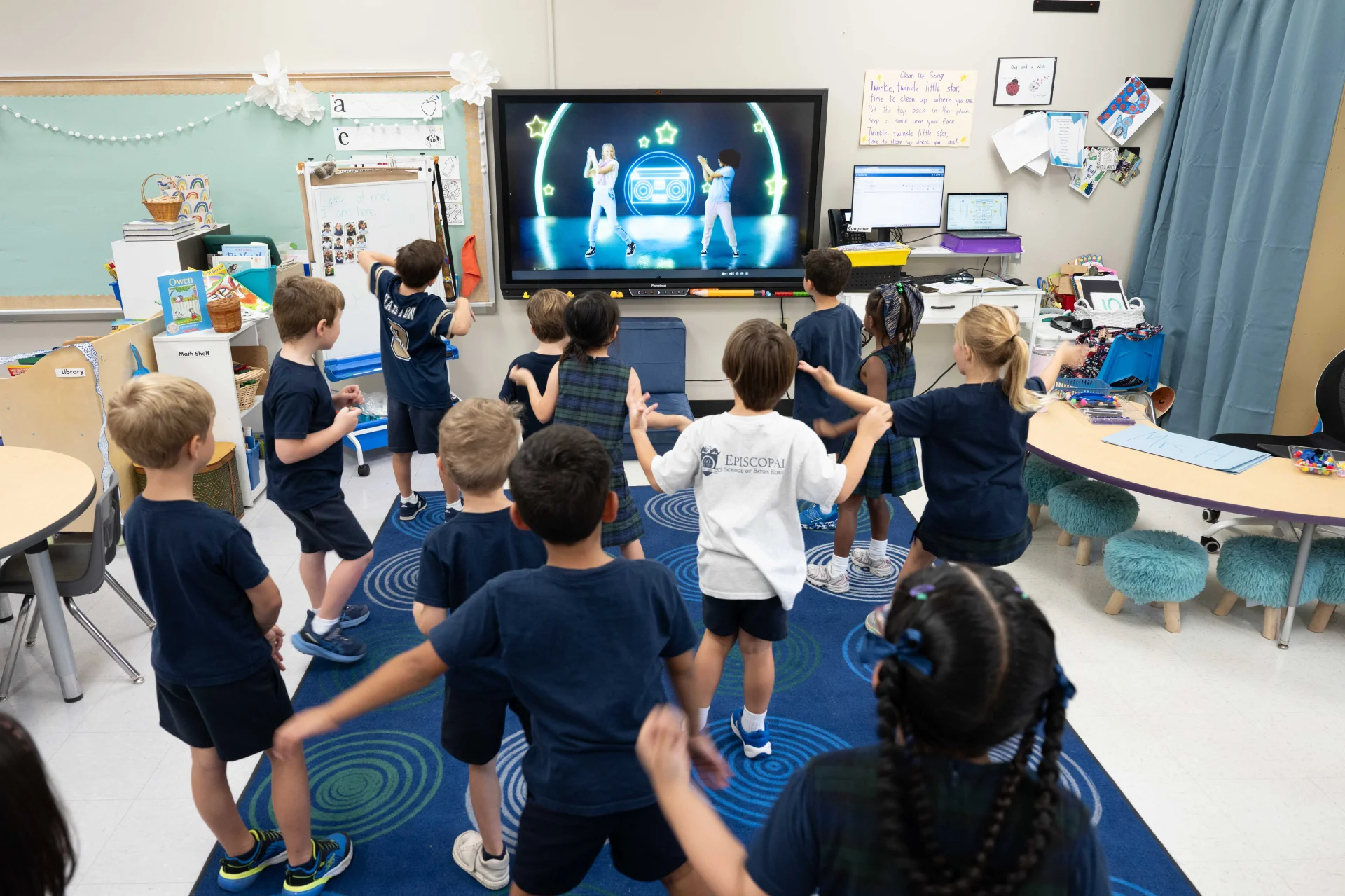
Birthday Clusters and Problem Solving
Veteran early childhood educator Henderson says the experience deepened her understanding of creating a positive, student-centered learning environment. “One key takeaway was the use of birthday clusters to better understand where children typically are developmentally,” she says. “This insight helps me set realistic expectations and plan appropriately for different stages of growth.”
Responsive Classroom methods are used beginning on the first day of school. Students set hopes and dreams that guide academic and personal goals for the year, and these goals are used to establish classroom rules and guidelines. Teachers model and demonstrate the behaviors expected of students and use encouraging, positive language to remind students along the way. Henderson says the recent professional development reinforced the value of teaching conflict resolution by equipping students with tools to solve problems independently. “Encouraging student-to-student problem-solving fosters responsibility and strengthens classroom community,” she says.
Henderson says the training also focused on oral language development and providing ample opportunities for students to practice speaking. “Paired with this is the importance of listening skills, which are critical for building strong comprehension,” she says. “I was reminded of the power of wait time – both during transitions and when asking questions – allowing students time to process and respond thoughtfully.”
Strategies for Young Learners
Responsive Classroom strategies take into account the age and needs of young students. “I learned the importance of incorporating movement and energizers to keep bodies engaged and minds focused throughout the day,” says Henderson. “Finally, the course emphasized quiet time and offering choices, ensuring that both students and teachers have opportunities to recharge.”
As Episcopal focuses on Building Community this year, the Responsive Classroom philosophy is a valuable tool for encouraging a sense of belonging in Lower School. Early childhood students are already off to a strong start with the support of a nurturing and skilled teaching team. Henderson looks forward to using what she learned this summer to create a positive learning experience this school year. “These strategies collectively support an environment where students feel empowered, respected and ready to learn.”
Want to learn more about Episcopal’s early childhood program? Join us for a Discovery Playdate on September 17th at 9 am. Your child will connect, create and celebrate learning in the QUEST Center in Foster Hall. Space is limited, so reserve your child’s spot by emailing Andrea at [email protected].
The Episcopal School of Baton Rouge 2025-2026 application is now available! For more information on the application process, to schedule a tour, or learn more about the private school, contact us at [email protected] or 225-755-2685.
Posted in the categories All, Lower School.
Other articles to consider
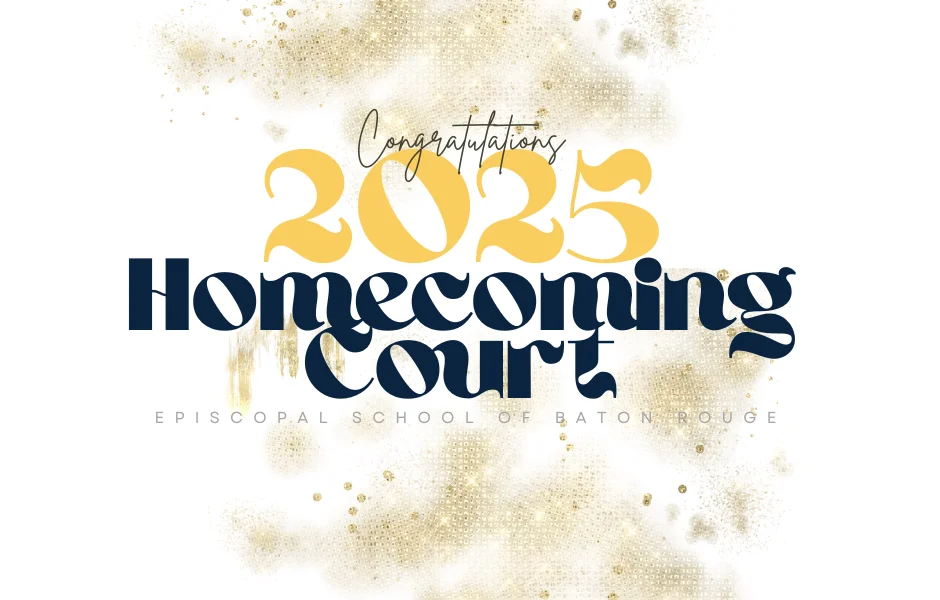 Oct2Introducing the 2025 Episcopal Homecoming Court!
Oct2Introducing the 2025 Episcopal Homecoming Court!Congratulations to this year's Homecoming Court.
See Details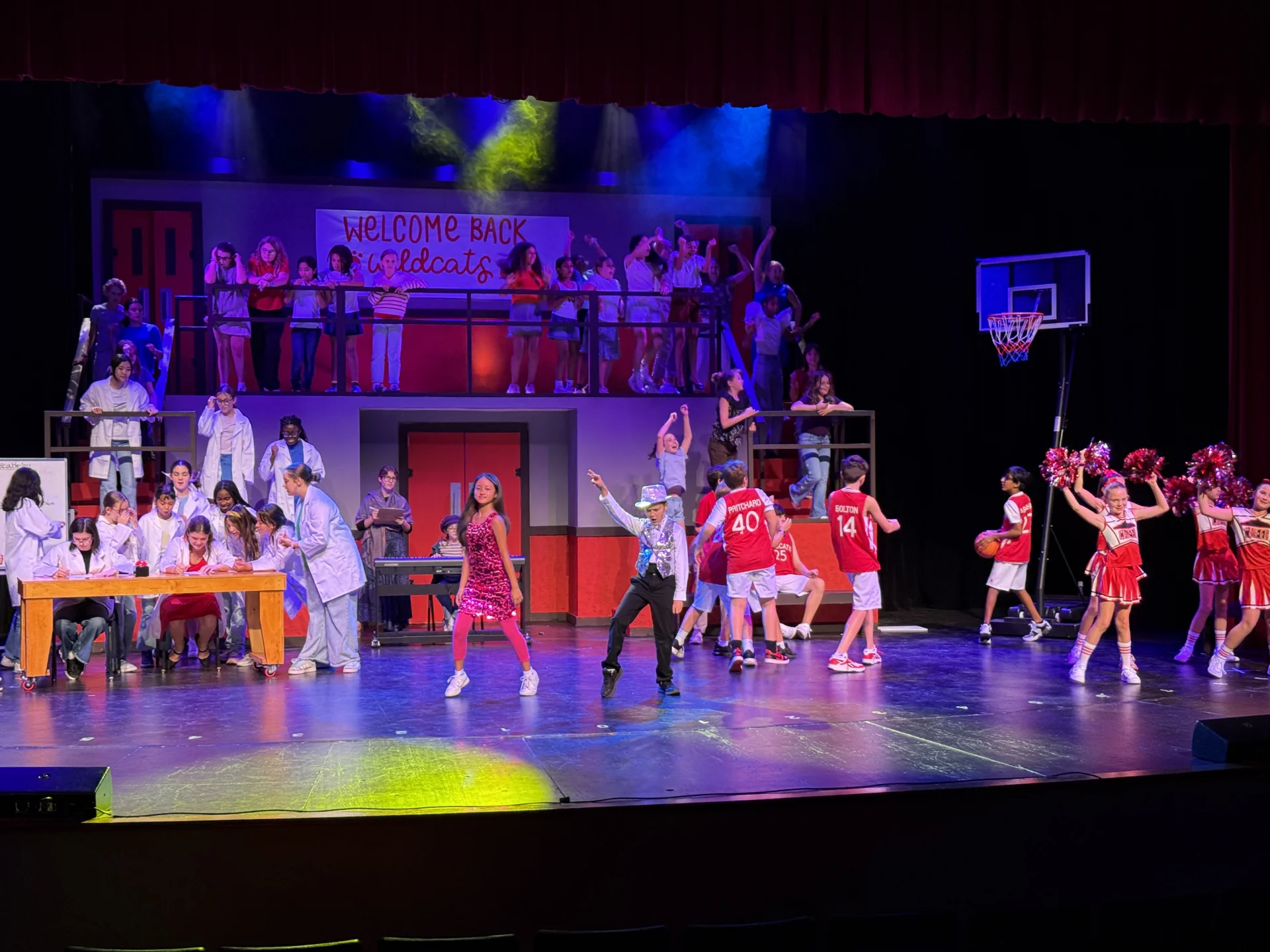 Oct2Don't Miss Episcopal's Presentation of "High School Musical Jr."
Oct2Don't Miss Episcopal's Presentation of "High School Musical Jr."Join Episcopal Middle School Oct. 10–12 for “High School Musical Jr.” Students will light up the stage and have audiences singing along. Purchase tickets today.
See Details Oct2Like A Good Gumbo: What Makes Religious Formation in Episcopal Schools Distinct
Oct2Like A Good Gumbo: What Makes Religious Formation in Episcopal Schools DistinctAs we celebrate Episcopal Schools Week, the Reverend Casey Duncan highlights what makes religious formation at Episcopal schools unique.
See Details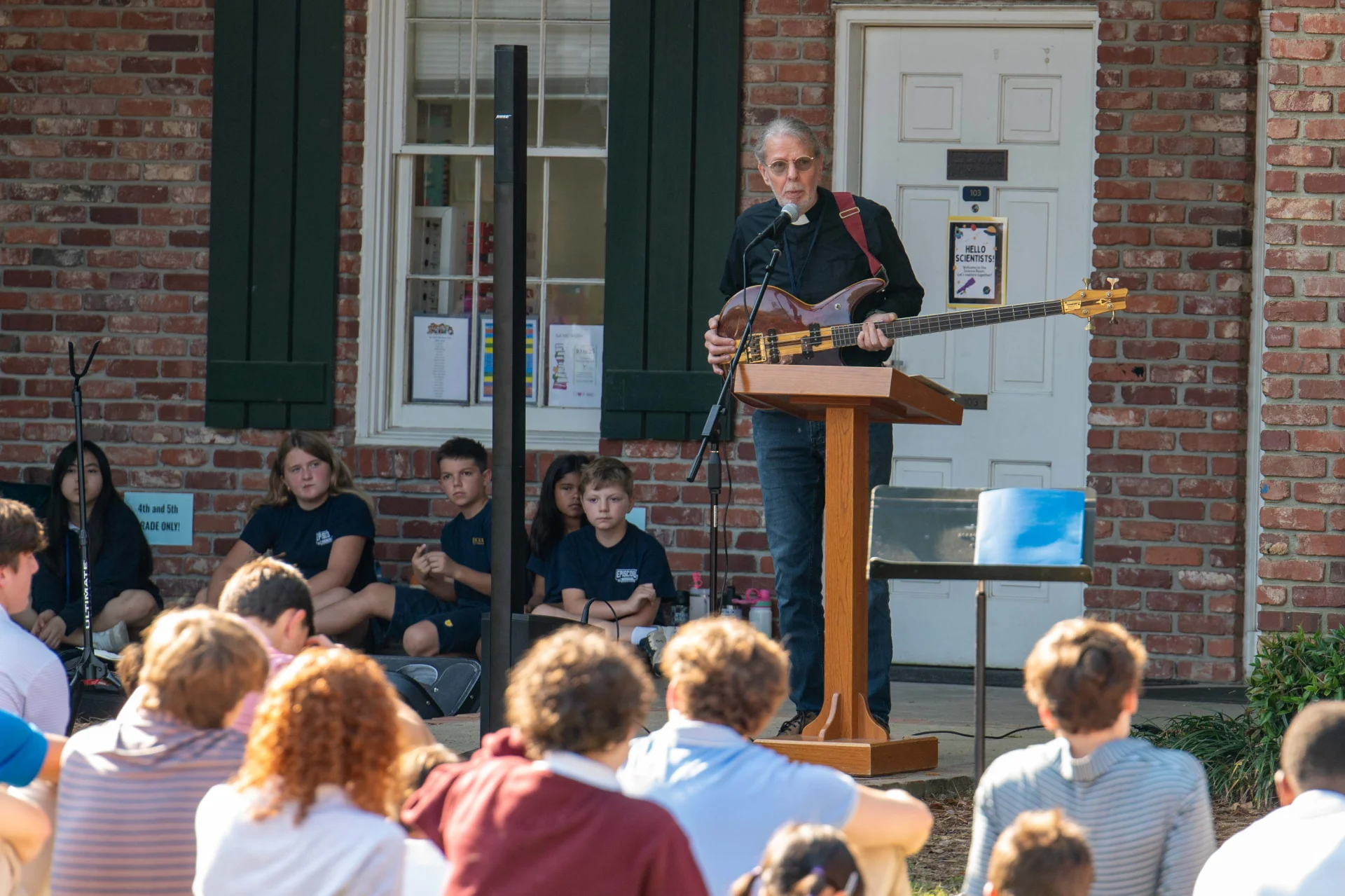 Sep25Episcopal Community Celebrates Peace Day
Sep25Episcopal Community Celebrates Peace DayOn Peace Day, Chaplain Charlie compared tuning a guitar to finding inner peace—reminding students that, like instruments, we need to stay in tune with ourselves and others.
See Details
Categories
- All
- Admission
- Athletics
- College Bound 2019
- College Bound 2020
- College Bound 2021
- College Bound 2022
- College Bound 2023
- College Bound 2024
- College Bound 2025
- Counselors Corner
- Episcopal Alumni
- Giving
- Head Of School
- Lower School
- Middle School
- Spirituality And Service
- Student Work
- The Teachers' Lounge
- Upper School
- Visual And Performing Arts
Recent Articles
- 10/2/25Introducing the 2025 Episcopal Homecoming Court!
- 10/2/25Don't Miss Episcopal's Presentation of "High School Musical Jr."
- 10/2/25Like A Good Gumbo: What Makes Religious Formation in Episcopal Schools Distinct
- 09/25/25Episcopal Community Celebrates Peace Day
- 09/25/25Father Patrick Reflects on Episcopal Schools
- 09/23/25Discover, Create, Explore: Episcopal STEAM Knight
- 09/18/25Small Class Size/Big Community Learning
- 09/17/25Lower School Students Make Their Mark on Dot Day


